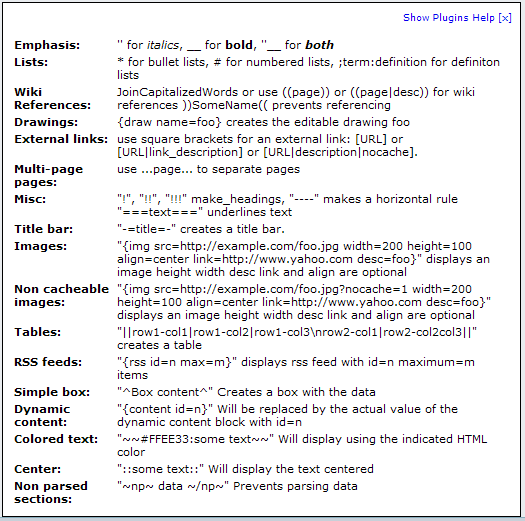WikiTags
much needed tag | |
| |
needed tag behavior | |

| |
Normal text | |
|
Normal text is just entered as is.
| |
References to other Wiki pages | |
|
ThisIsaReference
))ThisIsNotReferenced((
((this_is_a_wiki_page))
((this_page|This is the description))
| |
Links to external pages | |
|
[http://www.somesite.com]
VERY IMPORTANT: If you enable caching links to external pages please make sure to use the nocache directive when caching non-html pages: for example, PDF docs, binary files or similar. Otherwise, the caching system may make the page crash with an ugly message. Tiki can't determine whether a page is HTML or a large binary because it can be dynamically generated.
Tiki will automatically cache references to external pages or sites and a link to the cache will be displayed following the link. This is particulary useful when you link to notes or sections that may change or that may disappear in a near future. (Very similar to the Google cache when you see the results of a search in Google.) You can disable caching pages from the admin screen. | |
Bold and italic text | |
|
__This is text in bold__
''this will be displayed in italics''
| |
Underline | |
|
===Some underlined text===
| |
Monospaced | |
|
-+Some monospaced text+-
| |
Colors | |
|
~~#FF00FF:This is some text~~
| |
Centering text | |
|
::This text will be centered::
| |
Special characters | |
|
~lt~, ~gt~, ~ddd~, where ddd = decimal code of symbol (3 digits)
Additional Wiki Options
For more information
WikiSyntax
| |